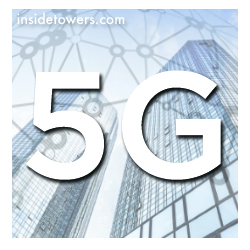Anticipated to be one of the first adopters to take 5G beyond the personal device through applications in Industry 4.0, manufacturing is expected to emerge as one of the most significant sectors for new revenue potential.
ABI Research recently released a report predicting ‘the market for 5G cellular connections in manufacturing will reach $10.8 billion by 2030, at a compound annual growth rate of 187 percent. To reach these profit margins, however, manufacturers need to find a logical relationship between daily plant operations and overall KPI’s.”
“Industry 4.0 ecosystem entities must consider an alternative set of measurements that look at how 5G and edge deployments aid manufacturing in establishing operational rules to run a plant. They are throughput, inventory and operational expense for the incoming flow of capital, capital located inside and capital going out, respectively,” said ABI Research senior analyst Don Alusha.
“Furthermore, equally important is the ability to measure risk when looking to adopt 5G and edge technology assets. Discussions on new technology adoption have always been based on an assessment of risk and reward,” added Alusha. “If the reward is truly compelling, adopters will take the risk. 5G and edge offer unprecedented commercial opportunities, but they inherently constitute new technologies and therefore there is a risk attached.”
Computer Weekly reported that ABI’s study indicates the need for manufacturers to continuously measure productivity growth, increase process automation to meet changing client demands, and establish a reliable supply chain that spans multiple geographies.
“To understand the importance of supply chaining and its significance in terms of competitive advantage, one need not go any further than Walmart,” Alusha pointed out. “Walmart is the largest retailer in the world (Amazon being second) and it does not produce a single item. All it ‘makes’ is a hyper-efficient supply chain. The capacity, reliability, high-quality service and speed provided by 5G and a hyper-converged edge compute can optimize operations for a super-efficient supply chain.”
“The implications for solution providers such as Ericsson, Huawei, Nokia and ZTE are that they must enhance their ‘value add’ by complementing their deep technical expertise with business expertise, including vertical industry knowledge, new functional expertise (sales, marketing and accounting), and solution design and consulting expertise tailored at niche use cases,” Alusha concluded.





Reader Interactions